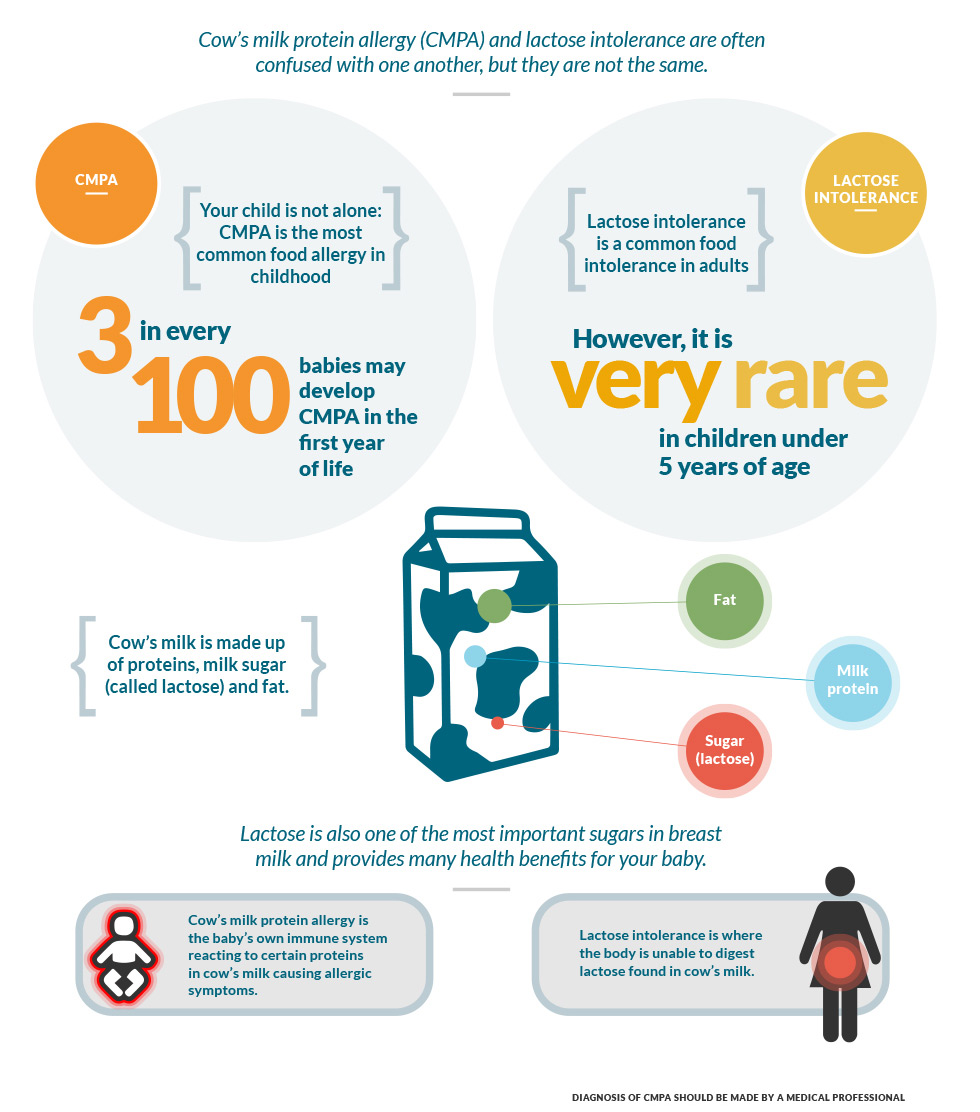The top eight food allergens in children are milk, eggs, fish, shellfish, tree nuts, peanuts, wheat and soybeans. Over the past 10 years, there has been a large increase in the number of babies diagnosed with food allergies.
SIGNS & SYMPTOMS OF COW’S MILK PROTEIN ALLERGY
The non-specific signs and symptoms of CMPA, ranging from colic and reflux to constipation, insomnia, eczema, diarrhea and crying, make diagnosis a real challenge. The symptoms involve many different organ systems, predominantly the skin and the gastrointestinal and respiratory tracts. The involvement of two or more organ systems increases the likelihood of CMPA.
Digestive
- Dysphagia
- Reflux and regurgitation
- Colic
- Abdominal pain
- Vomiting
- Anorexia, refusal to feed
- Diarrhea ± intestinal protein or blood loss
- Constipation ± perianal rash
- Failure to thrive
- Occult blood loss
- Iron-deficiency anemia

Up to 60% of affected infants have digestive symptoms.
DO NOT CONFUSE LACTOSE INTOLERANCE WITH CMPA
It is important to know the difference between lactose intolerance and CMPA (also known as CMP), as both have different causes and treatments; In addition, CMPA usually develops early in life, while lactose intolerance is extremely rare before 5 years of age.


